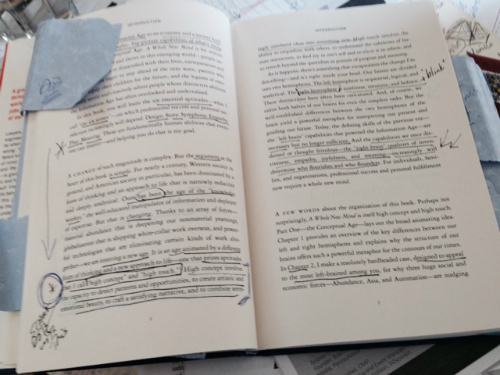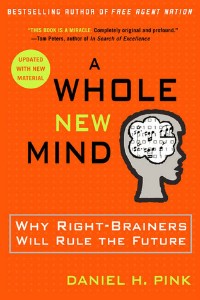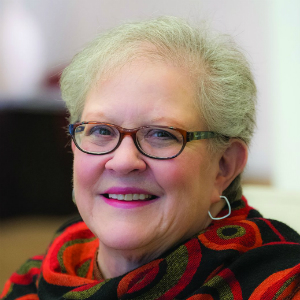Have you read “A Whole New Mind: Why Right Brainers Will Rule the Future” by Daniel Pink? It’s been on the market since 2006! You might remember that at the PCMA meeting in Seattle, colleague Bill Host and I conducted a great (if we do say so ourselves!) book club session using this book. I’ve referred to it often, given away hundreds of copies, and still use many of the principles in the book to guide my work.
It fits nicely with this blog on being a lifelong learner. In the introduction, Pink writes: “The future belongs to a very different kind of person with a very different kind of mind—creators and empathizers, pattern recognizers, and meaning makers. These people … big picture thinkers … will now reap society’s richest rewards and share its greatest joys.”
He goes on to say, “In this book, you will learn the six essential aptitudes—what I call ‘the six senses’—on which professional success and personal satisfaction increasingly will depend. Design. Story. Symphony. Empathy. Play. Meaning.”
One example that struck me was about learning for medical students: Pink provided information about how, at the Yale School of Medicine, “students are honing their powers of observation at the Yale Center for British Art, because students who study painting excel at noticing the subtle details about a patient’s condition.”
Think about the advantages of doing so in that profession and in ours. When I conduct training at meetings and in a classroom, I always encourage observation—of other rooms and how they’re set, of how people gather to learn in and outside structured learning environments, and to use those observations in designing one’s own meetings.
More, because heads are so often bent looking at an electronic device, people are missing so much that might enhance their learning by just observing behavior of communities in airports, train stations, restaurants, food courts, and of course, at meetings. Using what was observed, so much more can be brought to how we create experiential, learning meetings.
In the book are suggested readings, exercises [Dan ... if you’re reading this, I still have some of the cards you created, and the posters I had made from those to use for the book clubs conducted around your book], and more that will bring a whole new meaning to your mind and learning.
You can buy it at Amazon or any bookstore you prefer or the electronic version. I prefer the paper one—mine is marked up with thoughts, ideas, and uses! (See photo below).





